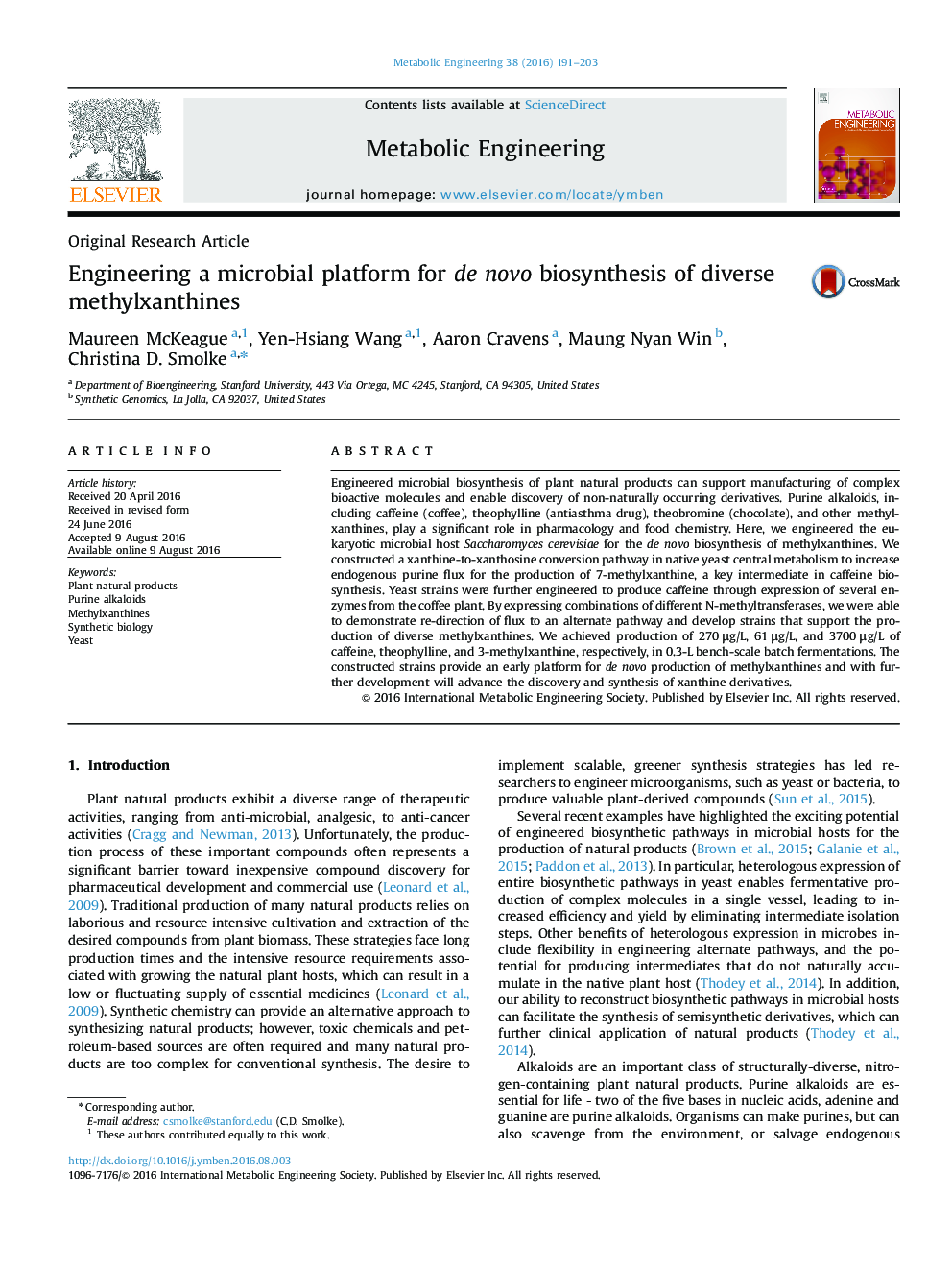| Article ID | Journal | Published Year | Pages | File Type |
|---|---|---|---|---|
| 6494194 | Metabolic Engineering | 2016 | 13 Pages |
Abstract
Engineered microbial biosynthesis of plant natural products can support manufacturing of complex bioactive molecules and enable discovery of non-naturally occurring derivatives. Purine alkaloids, including caffeine (coffee), theophylline (antiasthma drug), theobromine (chocolate), and other methylxanthines, play a significant role in pharmacology and food chemistry. Here, we engineered the eukaryotic microbial host Saccharomyces cerevisiae for the de novo biosynthesis of methylxanthines. We constructed a xanthine-to-xanthosine conversion pathway in native yeast central metabolism to increase endogenous purine flux for the production of 7-methylxanthine, a key intermediate in caffeine biosynthesis. Yeast strains were further engineered to produce caffeine through expression of several enzymes from the coffee plant. By expressing combinations of different N-methyltransferases, we were able to demonstrate re-direction of flux to an alternate pathway and develop strains that support the production of diverse methylxanthines. We achieved production of 270 μg/L, 61 μg/L, and 3700 μg/L of caffeine, theophylline, and 3-methylxanthine, respectively, in 0.3-L bench-scale batch fermentations. The constructed strains provide an early platform for de novo production of methylxanthines and with further development will advance the discovery and synthesis of xanthine derivatives.
Related Topics
Physical Sciences and Engineering
Chemical Engineering
Bioengineering
Authors
Maureen McKeague, Yen-Hsiang Wang, Aaron Cravens, Maung Nyan Win, Christina D. Smolke,
